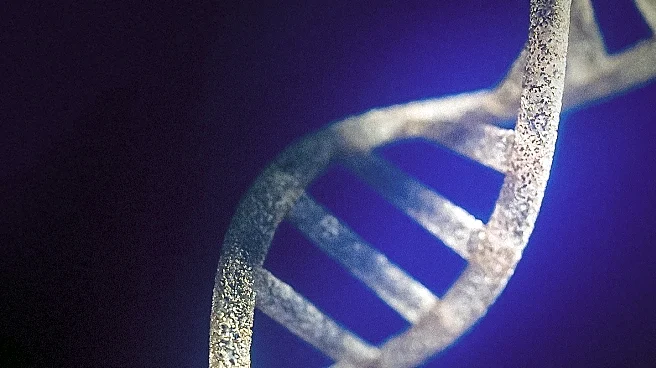What's Happening?
Genethon has released positive long-term efficacy data for its low dose micro-dystrophin gene therapy (GNT0004) in treating Duchenne muscular dystrophy (DMD). Three patients showed significant motor function gain and sustained reductions in creatine phosphokinase levels two years after receiving the therapy. The results were presented at the ESGCT 32nd Annual Congress. The Phase 3 trial is underway, enrolling 64 boys aged 6 to 10 who have retained their ability to walk. The therapy consists of an AAV8 vector and the optimized hMD1 transgene, designed to express in muscle tissue and the heart.
Why It's Important?
The confirmation of long-term efficacy for Genethon's micro-dystrophin gene therapy represents a significant advancement in the treatment of Duchenne muscular dystrophy. By improving motor function and reducing muscle damage, this therapy offers hope for patients with DMD, a progressive genetic disease that affects all muscles in the body. The successful results highlight the potential of gene therapy to transform the management of rare genetic disorders and improve patient outcomes.
What's Next?
The ongoing Phase 3 trial will provide further insights into the efficacy and safety of the therapy. If successful, GNT0004 could become a new standard of care for DMD, offering a single-dose treatment option that addresses the underlying genetic cause of the disease. Continued research and development efforts will be crucial to advancing gene therapies for other rare genetic disorders.
Beyond the Headlines
The development of gene therapies raises ethical considerations regarding access and affordability. Ensuring that these innovative treatments are available to all patients, regardless of socioeconomic status, will be important for maximizing their impact on public health.











